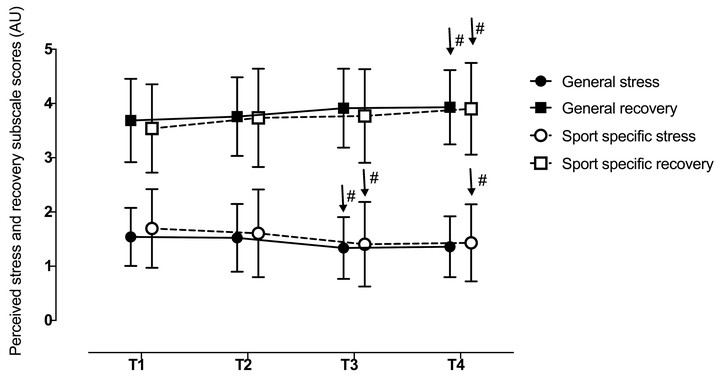Psychosocial Outcomes Associated With Soccer Academy Involvement: Longitudinal Comparisons Against Aged Matched School Pupils
 #
#
Abstract
Despite literature highlighting numerous risks to the healthy psychosocial development of youth elite academy soccer players, little of this research is based on high-quality research designs. This study employed a prospective longitudinal cohort design to track psychosocial outcomes of academy involvement within male youth elite soccer players (n = 33, U12-U16 age groups) compared to age-matched soccer-active school pupils (n = 44) over 12 months. Participants completed questionnaires assessing the most commonly raised psychosocial concerns at four equally spaced data collection periods (T1-T4). Repeated measures multivariate analysis of variance (MANOVAs) indicated that, over the year, both groups reported a healthy and improving stress and recovery balance, as well as positive and stable needs satisfaction and physical, psychological and social well-being. Academy players reported stable positive school-related quality of life, whereas school pupils reported increases from T3 to T4. Academy players reported consistent significantly higher total athletic identity and exclusivity of identity. Findings suggest that many concerns around negative psychosocial impacts of soccer academy involvement did not materialise in this context. However, heightened athletic identities remained a concern.